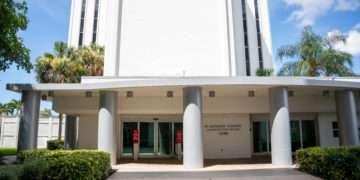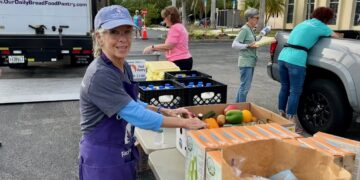Jim Shiebler, a real estate broker with Marcus & Millichap, found the right client and the right two restaurants to work a series of four deals involving one investor over the past three years.
The deals don’t create a sizeable impact in Southwest Florida where they occurred but demonstrate a textbook case of how and why investors are choosing restaurants and their use of the 1031 exchange program to save money while doing so. It also shows how the capitalization rate carries weight in the commercial real estate realm, especially during times of rising interest rates and inflation.
Late-night Taco Bell patrons off College Parkway and U.S. 41 in south Fort Myers, or those looking for a casual dining experience at Cheddar’s Scratch Kitchen at Gulf Coast Town Center, are likely not to notice the recent ownership changes. It’s business as usual at both, but the fast-food and sit-down restaurants are now connected.
Even Jeff Lienert of California can’t walk into Cheddar’s like he owns the place. Even though he now does.
“They’re going to be like, ‘Who are you?’” said Lienert, who is a wireless communications site development manager and a commercial real estate investor.
Lienert had owned the Taco Bell location at 12851 Cleveland Ave. in south Fort Myers, buying it under the 2F Land Company LLC in October 2019 for $2.26 million.
“I had him negotiate a 15-year lease extension,” Shiebler said.
That lease extension improved the Taco Bell’s cap rate, which is calculated by dividing the restaurant’s net operating income by the purchase price. It went from an 8.0 cap rate to 4.0. The Taco Bell has an annual net operating income of $132,000 and a triple net lease, meaning the tenant pays for the property upkeep, property insurance and property taxes.
The landlord has no responsibilities other than collecting monthly rent checks, which makes the property valuable to investors.
“We had five offers for the property,” Shiebler said. “As you know, all the dining rooms were killed when COVID began. Taco Bell’s value dramatically increased. Which gave him leverage for me to negotiate a 15-year new lease. Once we had that lease executed, I brought the property to the market.”
On May 17, Granite Capital LLC, another California investment company, bought the Taco Bell for $3.3 million, giving Lienert a $1.3 million profit. He said he used the profit to upgrade his investment while taking advantage of the 1031 exchange, a tax code that allows investors to swap investments during a 45-day window while deferring tax payments.
“Most savvy investors use it,” Shiebler said. “I represented him not only as the seller, but as the buyer of his next property.”
Lienert had the advantage of knowing he would have the equity to make the purchase and the disadvantage of not knowing exactly what that purchase would be during the 45-day window.
Not only did Shiebler find Lienert the Cheddar’s to buy, but he also got him an extension on the closing date of Taco Bell, which bought him some time to find Lienert the Cheddar’s.
“It gave him time to invest in his next property,” Shiebler said. “I represented the seller on the Cheddar’s. The price point was virtually identical to the Taco Bell.”
Lienert paid $3,011,000 for the Cheddar’s. He carries the risk of a shorter lease on the building, which is five years, but the reward of a prime location at what’s expected to be the epicenter of Southwest Florida.
“We closed (on) the Taco Bell in Fort Myers,” Shiebler said. “Six days later, we closed (on) the Cheddar’s at Gulf Coast Town Center.”
Lienert could not say enough about Shiebler.
“I live in California, but it’s not the best state to invest in,” Lienert said. “So, I’ve been doing some things in Florida. I’ve been working through Jim (Shiebler) for several years. I didn’t really want to sell the Taco Bell. But I had an opportunity where I got into it with a short-term lease. I was able to extend the lease.
“I spent a long time going over it with Jim. There was a risk I took. I was prepared to look at different types of properties. I was exploring my options. I was going to maybe put some money into a bleak property. I had a lot of options. But then we had the 1031 exchange timeline. Jim Shiebler, he’s just very unique to me. He’s very trustworthy. He has a lot of good information. He was a great resource. I’ve built a lot of trust with him.”
Why did a Taco Bell off U.S. 41 sell for more money than a Cheddar’s at Gulf Coast Town Center? Because it had 15 years remaining on the lease to just five at the Cheddar’s.
“That location is probably worth $1.7 or $1.8 million with a one-and-a-half-year lease,” Shiebler said of the Taco Bell. “With the 15-year lease extension, it’s worth $3.3 million.
“Our team, we follow the income stream. The land value is always secondary. The more stable the tenant, the more value it has. The lower the cap rate. Lower cap rate, higher price. Here’s the key: The lower cap rate is better for the seller; the higher cap rate is better for the buyer. The buyer, coming in, they want the highest rate possible, because that’s their highest rate of return.”






